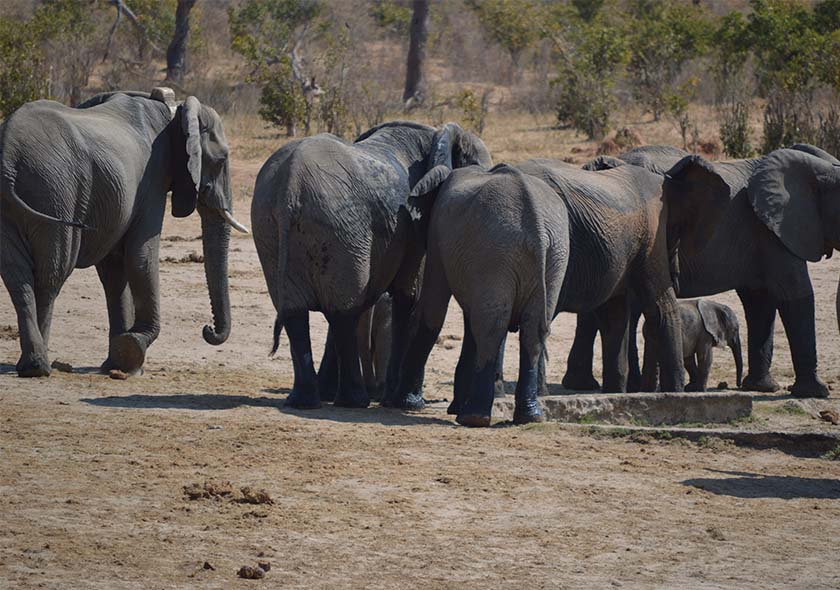
Sustainable Safaris in Chobe How Responsible Travel Protects Wildlife
Sustainable safaris in Chobe offer a unique way to experience wildlife while protecting the environment. This approach to travel emphasizes responsible tourism in Botswana, ensuring that natural habitats remain undisturbed.
Chobe National Park is renowned for its rich biodiversity and large elephant herds. Eco-friendly safaris here focus on minimizing environmental impact and supporting local communities.
Sustainable adventure travel in Chobe includes activities like walking safaris and bird watching, providing an immersive experience. Tour operators, such as Mayelane Tours, prioritize conservation and community engagement.
By choosing sustainable options, travelers contribute to Chobe conservation tours that protect wildlife and support local economies. This responsible travel ensures future generations can enjoy Chobe’s natural beauty.
Why Chobe National Park Is a Conservation Icon
Chobe National Park stands as a beacon of wildlife conservation and natural beauty. Located in Botswana, this protected area is famous for its significant elephant population and diverse ecosystems. The park’s savannas, wetlands, and riverine forests create a haven for a variety of wildlife species.
The park’s biodiversity attracts eco-conscious travelers seeking to witness its unique landscapes and wildlife. This diverse habitat supports countless species, including lions, leopards, and buffalo.
Conservation efforts in Chobe aim to protect these species and their habitats. The park’s role in wildlife conservation is critical for maintaining ecological balance in the region.
Key reasons why Chobe is a conservation icon:
- Home to the largest concentration of elephants in the world.
- Integral part of the Kavango-Zambezi Transfrontier Conservation Area.
- A model for successful community-led conservation efforts.
What Makes a Safari in Chobe Sustainable?
Sustainable safaris in Chobe ensure minimal impact on the environment. These eco-friendly journeys prioritize wildlife conservation and community involvement. They focus on reducing the ecological footprint while enhancing traveler experiences.
A key feature of sustainable safaris is the use of renewable energy. Many operators incorporate solar power into their operations, minimizing reliance on fossil fuels. Group sizes are also kept small to lessen disturbances to the wildlife and natural surroundings.
Tourism initiatives often support local communities, providing economic opportunities through sustainable means. This includes employing local guides and using locally sourced materials. Proceeds from these safaris are reinvested into conservation projects, aiding efforts to protect Chobe’s natural treasures.
Elements that characterize a sustainable safari:
- Use of eco-friendly transportation like electric vehicles.
- Support for community-led conservation initiatives.
- Adherence to guidelines that preserve natural habitats.
Responsible Tourism in Botswana: Key Practices and Benefits
Responsible tourism in Botswana is a model for sustainable travel. It focuses on maintaining ecological balance and respecting local communities. This approach ensures that tourism enhances rather than harms the environment.
Key practices include reducing waste, conserving water, and promoting renewable energy. Operators encourage tourists to engage in eco-friendly activities, such as bird watching and walking safaris. These efforts help reduce the carbon footprint while offering unique experiences.
Local involvement is crucial in responsible tourism. Empowering communities through job creation and education is a priority. This not only boosts the economy but also fosters a sense of stewardship among locals.
Benefits of responsible tourism include:
- Enhanced conservation efforts and habitat preservation.
- Economic growth through community-based initiatives.
- Opportunities for tourists to learn about local cultures.
By adhering to these principles, travelers contribute to Botswana’s future and its stunning natural heritage. Responsible tourism in Botswana ultimately benefits everyone, ensuring an enriching journey for all involved.
Eco-Friendly Safaris: Experiences That Make a Difference
Eco-friendly safaris offer a unique and enriching way to explore nature. These adventures emphasize conservation and respect for wildlife. They provide an authentic connection to the natural world and its inhabitants.
Many eco-friendly safaris in Chobe opt for smaller group sizes. This practice minimizes environmental impact. It allows for a more personalized and immersive experience. Tourists engage with nature intimately, which enhances appreciation and understanding.
Activities in these safaris often include options that leave no trace. Popular choices are walking safaris, canoeing, and educational tours. These activities ensure minimal disruption to the ecosystem.
Benefits of eco-friendly safaris include:
- Greater wildlife encounters without disturbing habitats.
- Reduced carbon emissions through sustainable practices.
- Support for local conservation initiatives and communities.
By choosing eco-friendly safaris, travelers contribute positively to conservation efforts. They also enjoy a deeper and more meaningful travel experience.
Chobe Conservation Tours: Supporting Wildlife and Communities
Chobe conservation tours play a crucial role in protecting the region’s natural resources. These tours focus on educating visitors about wildlife and habitats. They foster understanding through engaging and informative experiences.
Tourists participate in activities designed to support conservation efforts. These may include wildlife monitoring, tree planting, or habitat restoration. Such involvement helps preserve Chobe’s rich biodiversity and spectacular landscapes.
Conservation tours also prioritize community engagement. They empower local people and ensure benefits reach the grassroots. This approach strengthens community resilience and encourages sustainable practices.
Key aspects of Chobe conservation tours include:
- Educational programs on local wildlife and ecosystems.
- Active participation in conservation projects.
- Direct benefits to local communities and economies.
By joining these tours, travelers contribute to both environmental and social well-being, making a lasting impact.
Mayelane Tours and Other Leaders in Sustainable Travel
Mayelane Tours stands out for its commitment to sustainable travel. They implement eco-friendly practices that reduce environmental impact. Their tours also prioritize local community engagement.
Other operators in the Chobe region are following suit. Many employ similar strategies to promote responsible tourism. These efforts ensure the preservation of natural habitats for future generations.
Travelers can expect an enriching experience with these leaders in sustainability. Their tours often include educational components, helping tourists understand and appreciate conservation efforts.
Highlights of sustainable travel leaders include:
- Use of solar-powered vehicles and eco-lodges.
- Opportunities for community interaction and cultural exchange.
- Initiatives that directly support conservation and local development.
Choosing such operators enables tourists to travel responsibly while enjoying Chobe’s breathtaking beauty.
How Travelers Can Support Sustainable Adventure Travel in Chobe
Travelers play a vital role in promoting sustainable adventure travel. Choosing eco-friendly operators can make a big difference. Look for those certified by respected environmental organizations.
Being mindful of your consumption is crucial. Reduce waste by using reusable products and minimizing single-use plastics. Respect guidelines and maintain a safe distance from wildlife to avoid disturbances.
Participation in local conservation activities is highly encouraged. Engaging in initiatives like tree planting enhances your experience and aids preservation efforts.
Key ways travelers can support sustainable practices include:
- Packing eco-friendly products and gear.
- Supporting local businesses and artisans.
- Choosing off-peak times to visit the park.
Through mindful choices and actions, travelers contribute significantly to the sustainability of Chobe.
Conclusion: The Future of Sustainable Safaris in Chobe
The future of sustainable safaris in Chobe is promising. By prioritizing environmental and social responsibility, these safaris set a benchmark for wildlife conservation.
As more travelers embrace these practices, they safeguard Chobe’s ecological wealth for future generations. By supporting local communities and protecting wildlife, sustainable tourism ensures the park remains a vibrant, natural sanctuary. This harmonious approach not only benefits the environment but also enriches the travel experience, paving the way for a responsible tourism future in Botswana.
All Categories
Recent Posts
Where to stay in Victoria Falls
Sustainable Safaris in Chobe How Responsible Travel Protects Wildlife
Victoria Falls Tours and Activities





